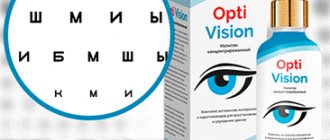The effect of blueberries on the organs of vision
There is an opinion that blueberries have a comprehensive positive effect on the visual organs. However, this is not entirely true. There are both scientifically proven facts and statements that scientists have yet to find out. The composition of the berries is still not fully understood, and not enough research has been carried out.
One of the most reliable properties officially recognized by medicine is that eating blueberries restores the retina in cases of retinopathy. This is a pathological process of a degenerative nature, developing as a consequence of diabetes and high blood pressure. The therapeutic effect of berries for humans is due to anthocyanins.
There is evidence that using the product is useful for dry eye syndrome. This pathology is characterized by insufficient production of tear fluid or a change in its physicochemical properties, as a result of which the surface of the eyeball is deprived of natural protection. Studies on blueberries indicate that blueberry extract in combination with fish oil helps eliminate the syndrome and associated headaches.
Some of the insufficiently confirmed facts include the following. Some scientists claim that the extract extracted from the berries has the ability to reduce intraocular pressure. And other experts have discovered the ability of blueberries to have a beneficial effect on the organs of vision in cases of glaucoma.
Blueberry extract – composition and antioxidant activity
Highly purified blueberry fruit extract is a concentrated extract from the berries of the Vaccinium myrtillus plant (common blueberry).
Extraction type – hydroalcoholic, raw materials do not undergo heat treatment, no additional ingredients. List of bioactive substances:
- – myrtilin, neomyrtilin and other anthocyanins;
- – polyphenols – catechin, epigallocatechin, etc.;
- – rutin, quercecin, hyperin and other flavonoids;
- – lactic, quinic and succinic acid;
- – citric, oxalic and malic acid;
- – ursolic, chlorogenic and caffeic acid;
- – vitamins B, C, E, PP, carotenes;
- – zinc, selenium, chromium, manganese;
- – amino acids glycine, cysteine and glutamine.
The main group of active ingredients are plant glycosides anthocyanins (anthocyanosides). These are colored glycosides that give blueberries their characteristic color (specifically myrtilin), they belong to secondary metabolites1, and are used in the food industry as a group of E163 dyes.
The main function of anthocyanins is antioxidant. They suppress the processes of oxidative stress (cell damage as a result of oxidation), reduce the intensity of inflammatory reactions. Stimulates intestinal barrier function in conditions of excess consumption of carbohydrates and fats2.
Properties of anthocyanins3,4,5,6:
- – the anti-inflammatory effect is due to the suppression of cyclooxygenase 1, 2 and 3, NO synthase, which explains the effectiveness of blueberry extract in the complex therapy of intestinal inflammation and degenerative joint pathologies;
- – the antioxidant effect of anthocyanins is explained by their ability to intercept and neutralize a wide range of radicals – nitrogen free radicals, hydroperoxyl radicals and superoxide radicals. Anthocyanins also break free radical chains between ascorbic acid and copper ions;
- – anthocyanins do not have an inactivating effect, but delphinidin derivatives suppress the development of a number of typical strains of the influenza virus, demonstrating antiviral activity;
- – antimicrobial activity is due to the ability of malvidin to suppress the reproduction of certain strains of Escherichia coli E. coli.
Also, anthocyanins, when consumed regularly, reduce the level of low-density lipoproteins and triglycerides, stabilize blood pressure, and suppress cellular oxidation caused by radiation therapy. Thanks to the anthocyanins in its composition, blueberry extract reduces platelet adhesion, stimulates an increase in sperm count, and provokes apoptosis of cancer cells in leukemia, glioblastoma and other types of aggressive neoplasms7,8,9.
Can blueberries improve vision?
What are the benefits of blueberries? Is it possible to improve vision with its help? Yes, eating berries has a positive effect on eye health, thanks to the beneficial substances included in its composition. Among the properties of the berry are the following:
- improves blood flow in the retina;
- ensures proper breathing and nutrition of structures;
- stimulates the production of rhodopsin, which is responsible for the clarity of perception of objects, due to the fact that anthocyanins accumulate in cells;
- normalizes the formation of structural components of the connective tissue of the eyes;
- strengthens the retina and the walls of blood vessels;
- prevents the oxidation of lipids - structural molecules of cell membranes, stabilizes their level.
Thus, blueberries restore and maintain the level of oxygen and essential nutrients in the eye structures, and also prevent the destruction of cellular elements. Undoubtedly, such effects can have a positive effect on vision. However, this applies mainly to functional disorders. With organic disorders such as blepharitis or cataracts, berries cannot help people.
Beneficial properties of blueberries
1. The plant is rich in antioxidants, which help combat stress.
2. Eating berries, thanks to the neutralization of free radicals, slows down the aging process of the body, is a prevention of cancer, stroke, atherosclerosis, and heart attack; 3. Fruits contain such beneficial properties as fruit acids, tannins, dietary fiber, anthocyanins, pectin, essential oils, iron salts. 4. Normalizes the formation of structural components of the connective tissue of the eyes; 5. Blueberry anthocyanins are able to accumulate in the tissues of the eye - the retina and the walls of blood vessels are strengthened; 6. Anthocyanidins promote the regeneration of the photosensitive pigment of the retina - rhodopsin; 7. The trophism of the retina improves, its microcirculation is stimulated; 8. Tissue mechanisms for protecting the retina are restored; 9. The collagen matrix of connective tissue is strengthened; 10. The synthesis of glycosaminoglycan, a component of connective tissue, is stimulated, due to which the retinal capillaries become stronger; 11. Stabilize phospholipids of cell membranes. Important!
In cases of visual impairment accompanied by other abnormalities, the use of blueberries may be useless (cataracts, blepharitis, optic nerve disorders).
How to use blueberries to improve vision?
You can eat berries in any form to improve visual function. The ideal option is fresh, recently picked blueberries. You can preserve its healing properties in different ways. Jam is not suitable for this purpose, since during prolonged cooking the beneficial substances will lose their activity.
It is best to freeze the berries, grind them with sugar (you can put them through a meat grinder or blender, add granulated sugar and store them in the refrigerator), and dry them. Another method of preparation is to make blueberry juice from the product. To do this, pass the berries through a juicer, add sugar, bring to a boil, and then roll up the jars.
Before use, dry fruits should be soaked in plain water. This should be done at night, since it is better to take blueberries in the morning, before breakfast. When taking juice, you must remember that it has a high concentration of active substances, so you need to drink it starting with a minimum dosage.
Are frozen blueberries healthy? Yes, it can also be used to improve vision. The active substances of the berry completely retain their properties.
If it is not possible to pick berries, you should pay attention to nutritional supplements containing blueberries or their extract. However, there is a possibility that neither one nor the other may be included in the lineup.
Properties of blueberry juice
Of course, the properties and benefits of blueberry juice for the body are explained by its rich and unique composition.
Since anthocyanins in blueberries form special compounds with glycosides, drinking its juice has a stimulating effect on the retinal substances responsible for adapting to sudden changes in light: vision improves, and the eyes more easily adapt to working in bright light or at dusk. By drinking blueberry juice regularly, several times a week, you can “shift” impaired vision to normal, leveling it by 1.5 diopters or more.
Blueberry juice has pronounced immunomodulatory properties. So, if you drink a glass of freshly squeezed blueberry juice every day during the berry ripening season, your immunity will be strengthened, and you will spend the winter without colds and flu. If you happen to get sick, blueberry juice will come to the rescue here too. So, for a sore throat, they gargle with it 3-4 times a day and are cured very quickly.
Swiss specialists, based on concentrated blueberry juice, have created the homeopathic drug Narosan Blueberry, which is indicated for a number of diseases: anemia and hypovitaminosis, physical and nervous exhaustion, memory and attention disorders, chronic fatigue, osteoporosis, eye diseases and varicose veins. Blueberry juice not only strengthens veins and other blood vessels, but also normalizes blood composition, thanks to the high content of iron and other trace elements.
Due to its antibacterial properties, blueberry juice is used in the treatment of certain inflammatory diseases of the gastrointestinal tract - for example, hypoacid gastritis and enterocolitis - and urinary tract - cystitis, urethritis, etc. In such cases, freshly squeezed juice is drunk before meals, 1/2 glass 3 times a day , adding 1 tbsp. honey
In the summer heat, when outbreaks of gastrointestinal infections are common, blueberry juice can be drunk as a prophylactic to protect against infection with dysentery and other “diseases of dirty hands.” Blueberry juice also helps to get rid of worms: it has a fairly strong anthelmintic property, and, unlike chemical tablets, does not cause harm to health - on the contrary, it helps to quickly recover from an illness.
The benefits of blueberries and their juice for hepatitis have been proven - as choleretic agents.
The restorative, antioxidant and tonic properties of blueberry juice make it possible to alleviate the condition of seriously ill patients, for example, with oncology and Alzheimer's disease.
The active substances in blueberry juice improve emotional well-being, neutralize free radicals, help body tissues renew, and support the functioning of the heart and nervous system.
Berry dosage
Scientists have found that to improve vision with blueberries, you need to consume 50 mg of anthocyanins per day. This is the amount contained in three full tablespoons of fresh berries (approximately 100 grams). Is it possible to do more? Excess does not make sense - according to research, increasing the dosage does not affect the degree of effectiveness.
The dose of the dried product is one tablespoon. You can start taking fruit juice in the same way, with one spoon, gradually increasing it to 0.5 cup. Children must first be diluted with water to see how the body reacts.
Like any product of plant origin, blueberries have an effect only if consumed regularly for 1–2 months. That is, you should not expect a quick improvement in your vision, especially if you eat berries periodically.
Six must-have eye products
Fish - for spiciness
Nutritionists strongly recommend that we eat fish two to three times a week. It turns out that ophthalmologists support them in this with both hands! Fish contains the very healthy fatty acids and polyunsaturated fats that we need for eye health. Especially Omega-3. How much do you need: 300 grams twice a week. Blueberries - against fatigue This berry is the main component of all vitamin complexes for the eyes. It protects our eyes from overstrain and fatigue. After all, blueberries contain anthocyanins, which help maintain healthy capillaries through which nutrients are delivered to the eye muscles and nerves. Thanks to these substances, blood circulation in the eye vessels improves. In addition, blueberries contain vitamins A and C. Due to their antioxidant properties, these vitamins reduce the harmful effects of free radicals. How much is needed: 1 - 2 spoons per day or frozen berries, or in the form of jam, jelly. Grapefruit - against lens aging Grapefruit contains many useful substances: vitamin C, vitamin A, calcium, iron, manganese, potassium, phosphorus, folic acid and many types of vitamin B. But the most important thing in grapefruit is the content of special substances, bioflavonoids, which slow down the aging of eye lenses. That is why the most useful part of a grapefruit is the transparent skin that separates the segments, which contains these bioflavonoids. Because of them, the fruit acquires a bitter taste, but these substances are very beneficial for eye health. Therefore, it is worth eating the whole grapefruit without removing the skin. So a whole grapefruit is much healthier than freshly squeezed juice. How much is needed: daily or once every two days, one piece. Carrots - for “twilight” vision If you feel that your vision in the dark has become worse, bright light hurts your eyes, your eyes get tired, harmful styes pop up and conjunctivitis torments you, then you are seriously lacking the main eye vitamin - A, or retinol. We need it for the normal functioning of the retina, since it is part of the pigment responsible for “processing” light into electrical impulses and transmitting them to the brain. How much is needed: 150 grams with a spoon of sour cream or vegetable oil two to three times a week. Pistachios - for the retina It's no secret that all nuts are rich in minerals that are vital for the normal functioning of the human body. The leaders in nutritional properties among nuts are almonds, walnuts and pecans. But on the first line of the hit parade of healthy nuts are pistachios. In addition to copper, magnesium, phosphorus, potassium, fiber and “healthy” fats, pistachios contain lutein and zeaxanthin. Although the names of these substances sound mysterious, they are very beneficial for the eyes, as they help prevent muscular dystrophy associated with aging. According to American researchers, a 28-gram serving of California pistachios (about a handful) contains more beneficial antioxidants than any other nut. That's 342 micrograms of lutein and zeaxanthin: 13 times more than in a hazelnut or a glass of orange juice. How much is needed: a handful, or 30 grams every day. Cabbage - for aches and redness of the eyes It should also be eaten, nutritionists assure, although not for everyone (with caution in case of increased stomach acidity). And cabbage, whether our native white cabbage or red cabbage, is good for the eyes because it contains a lot of vitamins: C and P, B1, B2, PP. And also the substance choline. Spinach is also rich in vitamin K. Sauerkraut contains especially a lot of vitamin C - much more than the same citrus fruits. It is this that helps eliminate the fragility of blood vessels (due to the fact that they burst and the eyes turn red) and improves blood circulation. Also useful for the formation of collagen, necessary for the regeneration of eye cells and blood vessels. How much is needed: at least 150 grams three times a week in any form - soups, salads and just like that. OPHTHALMOLOGIST'S COMMENT For treatment you need to eat three kilos of blueberries! “As far as I know, there have been no serious studies on the effects of various products on vision,” says ophthalmologist Alexandra Tur. — And those “studies” on 25–50 people that are carried out by various British and American scientists should not be taken seriously. But in any case, a variety of foods, especially those containing antioxidants (fatty fish, dark chocolate and even red wine), have a good effect on the condition of the retina. After all, eye disease is mostly dystrophic in nature, that is, it is associated with general aging, exhaustion of the body, and thinning of blood vessels. And the more varied the food, the more vitamin-rich it is, the better. But don't think that a couple of tablespoons of blueberries a day will immediately help your eyes. For medicinal purposes, you need to eat an average of three kilograms every day for a month! These are the doses of beneficial blueberry substances found in medicinal preparations. The same goes for grapefruit. But the benefit of natural products is that they cannot overwhelm the body with vitamins; they are absorbed in the right quantities.
Blueberries for children's eyesight
Blueberries for children are useful for strengthening the visual analyzer and improving vision. Before introducing it into your diet on an ongoing basis, give a small amount of berries, about a tablespoon. The fruits have no contraindications, however, there may be individual sensitivity to the active compounds, which will manifest itself in the form of an allergic reaction.
The preventive and therapeutic dosage for children is slightly less than for adults. You can start from the age of 7-12 months, adding a few berries to purees or drinks. It is better not to give whole fruits to a very young child, but to chop them first. Blueberries should be given with caution to children who suffer from constipation, as they have a strengthening effect. The maximum number of berries, provided the product is well tolerated, is not limited.
Blueberry drops for excellent vision
This recipe has been around for many years. During the time of general computerization in the country, I spent a lot of time working on setting up various computer systems. By the end of the working day, my eyes were very tired and watery. My vision gradually deteriorated, I had to consult an ophthalmologist, who recommended appropriate treatment and wrote out a prescription for glasses. These glasses also did not last long, they became weaker, and I had to order others, but with stronger diopters.
Then I myself decided to tackle a problem that was important to me: I studied a large amount of specialized literature and advice from experienced healers. As a result, I used recommended special exercises, healing water procedures and many other methods to restore vision. There was a result, of course, but it didn’t satisfy me.
Recipe for restoring vision
And, somehow, on occasion, my comrades suggested a very effective village recipe for restoring vision, which I hastened to use - treatment by instilling freshly prepared blueberry juice into the eyes.
True, it was already winter, and blueberries did not grow in the forest. By order, they brought me frozen, natural and ripe blueberries from another city. I took 1-2 tablespoons of blueberries, poured purified hot water over them in a porcelain cup, and after 10 minutes the berries thawed. Then I drained the water and drank it, and mashed the thawed blueberries in a strainer or through cheesecloth until juice was obtained. The juice was poured into a special bottle, diluted with distilled water, which can be found in a pharmacy in a ratio of 1 juice to 2 water, then placed it in the refrigerator.
How to use blueberry drops?
In the morning, after sleep, I used a pipette (2-4 drops of juice, depending on the size of the pipette) to drop into both eyes, and to prevent smudges, I first placed sanitary napkins around them, because Blueberry juice contains a coloring agent. To complete the procedure, you can ask your loved ones for help. After instillation, a slight, short-term tingling may occur in the eyes. This phenomenon should not bother you. It won’t hurt if you systematically perform special eye exercises and water procedures; there is a lot described about them in the literature.
Procedures must be performed daily and, preferably, without omissions. In the summer, harvest blueberries only when they are absolutely ripe (if they are green, they will burn strongly when buried), put them in bags for 12 months, and store them in the freezer. In the summer, the juice is prepared in the usual way. The juice should be prepared weekly, throughout the year. A year later, you will see a pleasant result, contemplating in the ophthalmologist’s office and the tenth line on the table for assessing the strength of vision.
Important warning! When preparing blueberry juice, be sure to maintain cleanliness, including sterilizing all components of the utensils. As mentioned above, it is advisable to take purified water (protium or silicon) for defrosting blueberries. After all, you need to take care of your eyes!
Don't forget about willpower!!! You really need these procedures! Vision is lost quickly and takes a long time to recover.
You can first consult with an ophthalmologist and read real reviews of people who have used these drops by typing the query “Blueberry drops for vision” into the search engine.
I sincerely wish you great success in your recovery.
Drugs
The positive effects of blueberries on vision have been taken into account by pharmaceutical companies and manufacturers of dietary supplements. The composition and cost of products containing dry berries or their extract vary. At the moment, there is only one blueberry-based drug that is officially considered a medicine. This is Strix. Others are classified as dietary supplements.
Among the variety of means, the following can be noted:
- "Blueberry-f" from Farmakom, Ukraine;
- “Blueberry Forte” from “Evalar”, Russia;
- “Blueberry Optima” from “Osokor”, Ukraine;
- Visit from “Kiev Vitamin Plant”, Ukraine.
Vitamins with blueberries
Ophthalmologists often prescribe vitamin complexes with blueberries to prevent various pathologies. Vitamins and products are dietary supplements. Can be used in combination with medications. In pharmaceuticals there is only one drug based on these berries, which is a medicine. This drug is called Strix.
In addition to this, there are the following vitamin complexes:
- "Blueberry-f";
- "Blueberry Forte";
- "Blueberry Optima";
- "Visivit".
Vitamins can be taken independently, according to the instructions. To achieve an effective result, they should be taken for at least 1 month. Then the person will be able to notice an improvement in visual acuity. It will be especially useful for people who put prolonged strain on their eyes. This may be related to work or hobbies. Such vitamins prevent the development of dry eye syndrome.
Can lactating and pregnant women take blueberries?
How are blueberries beneficial for women during pregnancy?
During the period of bearing a child, the berry:
- strengthens blood vessels, preventing varicose veins;
- is a source of vitamins and antioxidants;
- prevents vision impairment;
- reduces sugar content;
- strengthens the immune system and exhibits a number of other beneficial properties.
If a pregnant woman is prone to constipation, the fruits should be consumed with caution. Can breastfeeding women eat blueberries? It is better not to eat it while breastfeeding, as it can lead to allergies in the child or negatively affect digestion.
Despite the fact that blueberries are good for vision, they should be consumed with caution. Powerful active ingredients not only have a healing effect, but can also negatively affect your well-being. By observing the measure, you will get the desired health effect.
Author: Tatyana Pushkareva, doctor, especially for Okulist.pro
Contraindications and harm
Despite the enormous benefits of blueberries, in some cases its use is prohibited:
- It is allowed to eat berries in very small doses (for example, in jam) for gastritis with high acidity . The product contains acids that aggravate the situation;
- Dried berries should not be eaten if you have chronic constipation;
- should not be used by people with poor blood clotting;
- in case of dysfunction of the duodenum, it is allowed to consume in very small doses;
- Do not eat if you have a food allergy;
- During pregnancy and breastfeeding, be careful with the berry. In some cases, an allergic reaction may occur;
- Pick blueberries only in environmentally friendly places. It is prohibited to pick fruits near factories, abandoned mines, and stations. Berries accumulate harmful substances, and when contaminated blueberries are consumed, the chances of food poisoning increase;
- Patients with oxylaturia (a special form of urolithiasis) are strictly prohibited from taking blueberry juice or berries.
Excessive consumption of blueberries can develop an allergy to this product. Eat healthy foods in moderation: for an adult, eating a handful of berries per day is enough.
Video: “Blueberries - composition and properties”











